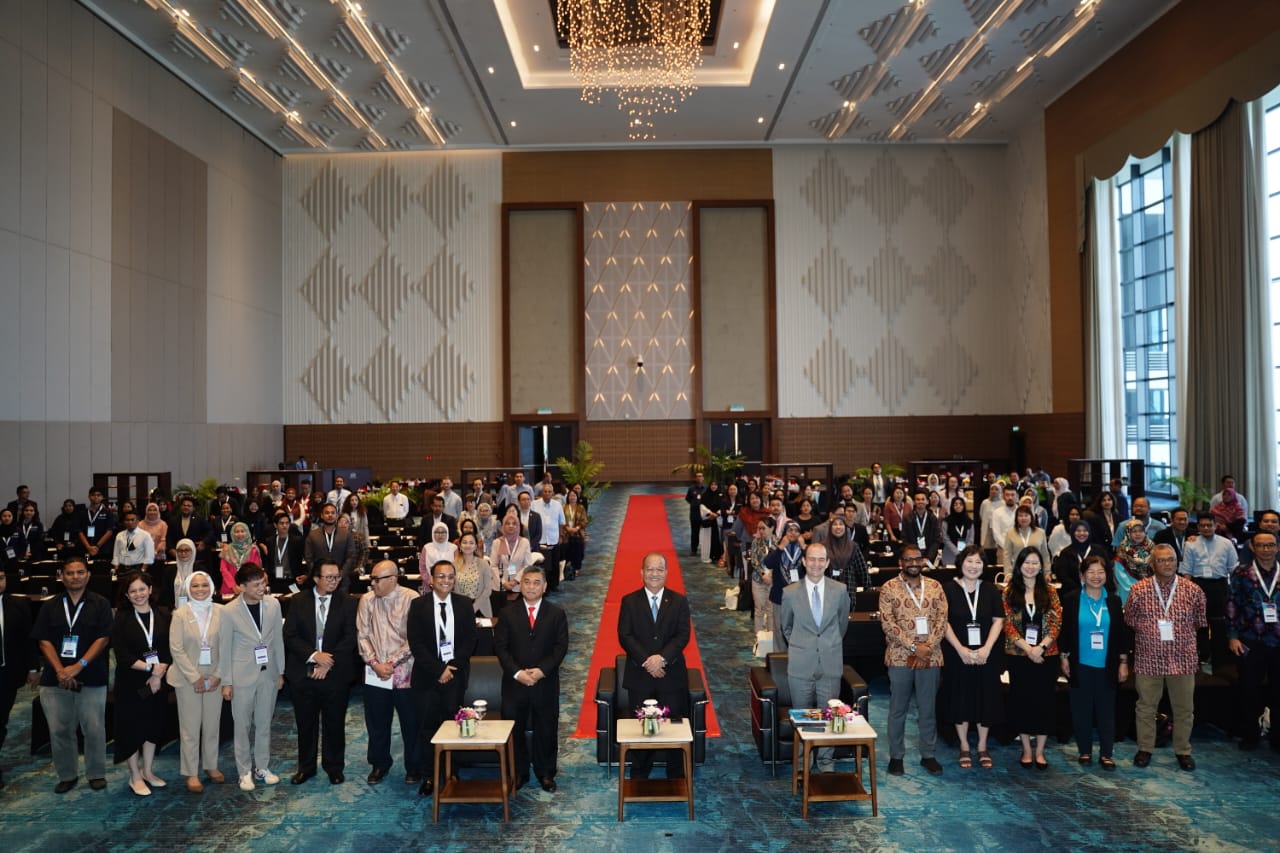 More than 150 professionals, experts and thought leaders from around the world gathered at Sabah International Convention Centre, here today for the region’s first symposium on the social and behaviour change communication (SBCC).
More than 150 professionals, experts and thought leaders from around the world gathered at Sabah International Convention Centre, here today for the region’s first symposium on the social and behaviour change communication (SBCC).
The first Asia Pacific SBCC Regional Symposium 2023 is co-organised by UNICEF Malaysia and the country’s three leading universities - Universiti Malaysia Sabah, Universiti Kebangsaan Malaysia and Universiti Putra Malaysia.
“This Symposium gathers SBCC practitioners to share best practices, explore opportunities, and develop sustainable solutions together with communities. We look forward to deepen our partnership to achieve better results for every child in the region,” said Robert Gass, UNICEF Representative to Malaysia and Special Representative Brunei Darussalam.
“The solution to many problems children face today have roots in social norms and behaviours. Guided by the mantra ‘Nothing about us, without us’, social and behaviour change strategies have the potential to empower individuals to make choices that protect their rights, develop communities, and promote resilience”, added Robert.
Themed “SBCC in Southeast Asia and South Pacific: Unlocking its Potential for Community Development and Resilience”, the inaugural event was officiated by Assistant Minister to the Chief Minister Datuk Abidin Madingkir, on behalf of the Chief Minister of Sabah, Datuk Seri Hajiji Hj Noor. The symposium will end tomorrow.
Throughout the two days, the jam-packed symposium features 17 programmes which include a keynote address, plenary sessions, oral presentations, experiential zones, forums, a sandbox, parallel roundtable sessions and a closing reflection, and 35 esteemed speakers from 7 countries in the region, namely Malaysia, Vietnam, Laos, Thailand, Singapore, Indonesia and New Zealand.
Among them are Axiata Foundation Chief Executive Officer Mohamad Kamal Nawawi, Institute for Development Studies Sabah Chief Executive Officer Associate Professor Datuk Ts. Dr. Ramzah Dambul and the award-winning TV Journalist and Astro Awani former Editor-in-Chief Kamarul Bahrin Haron.
These distinguished speakers are the panellists for the Plenary Session titled Diverse Voices, Shared Visions: Collaborative Strategies for SBCC, scheduled on the first day of the symposium.
The Asia Pacific SBCC Regional Symposium 2023 aims to unlock the potential for SBCC investment opportunities in the region, and to strengthen the SBCC network with various stakeholders, strategic partners, and key players in the region for sustainable development.
Meanwhile, UPM-UNICEF C4D Programme Director Dr Tham Jen Sern said, the distinctiveness of the three institutions behind the SBCC initiative mirrors their diverse objectives, united by a common purpose that is to contribute to Malaysia's social development and well-being.
“Together, we hope to bring rays of hope and opportunities across a broad spectrum of society,” Dr Tham said.
Throughout the two days, the jam-packed symposium features 17 programmes which include a keynote address, plenary sessions, oral presentations, experiential zones, forums, a sandbox, parallel roundtable sessions and a closing reflection, and 35 esteemed speakers from 7 countries in the region, namely Malaysia, Vietnam, Laos, Thailand, Singapore, Indonesia and New Zealand.
Among them are Axiata Foundation Chief Executive Officer Mohamad Kamal Nawawi, Institute for Development Studies Sabah Chief Executive Officer Associate Professor Datuk Ts. Dr. Ramzah Dambul and the award-winning TV Journalist and Astro Awani former Editor-in-Chief Kamarul Bahrin Haron.
These distinguished speakers are the panellists for the Plenary Session titled Diverse Voices, Shared Visions: Collaborative Strategies for SBCC, scheduled on the first day of the symposium.
The Asia Pacific SBCC Regional Symposium 2023 aims to unlock the potential for SBCC investment opportunities in the region, and to strengthen the SBCC network with various stakeholders, strategic partners, and key players in the region for sustainable development.
Meanwhile, UPM-UNICEF C4D Programme Director Dr Tham Jen Sern said, the distinctiveness of the three institutions behind the SBCC initiative mirrors their diverse objectives, united by a common purpose that is to contribute to Malaysia's social development and well-being.
“Together, we hope to bring rays of hope and opportunities across a broad spectrum of society,” Dr Tham said.



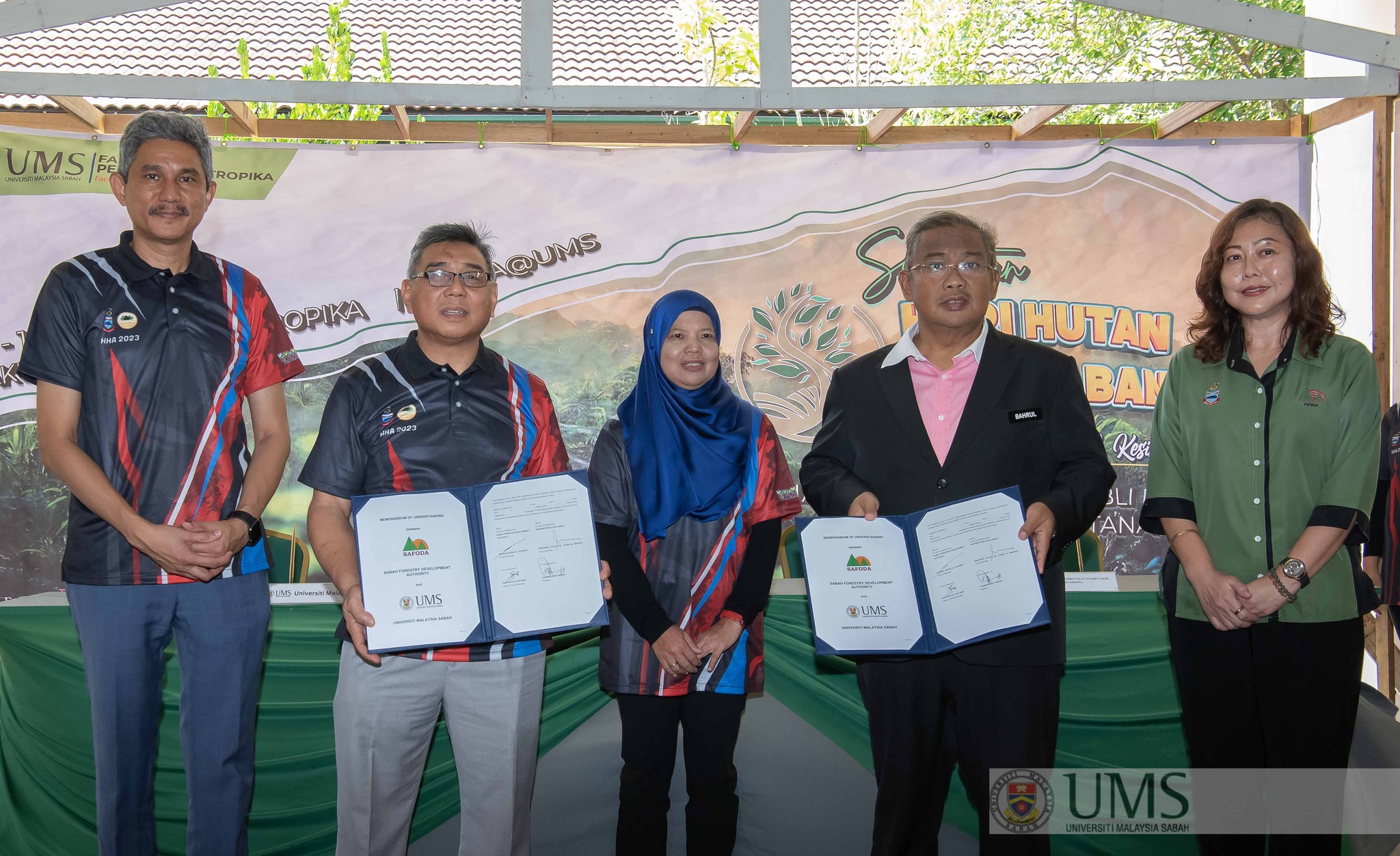 Universiti Malaysia Sabah (UMS) through the Faculty of Tropical Forestry (FPT) organised the International Forest Day Celebration to raise public awareness of the importance of forest preservation and conservation.
Universiti Malaysia Sabah (UMS) through the Faculty of Tropical Forestry (FPT) organised the International Forest Day Celebration to raise public awareness of the importance of forest preservation and conservation.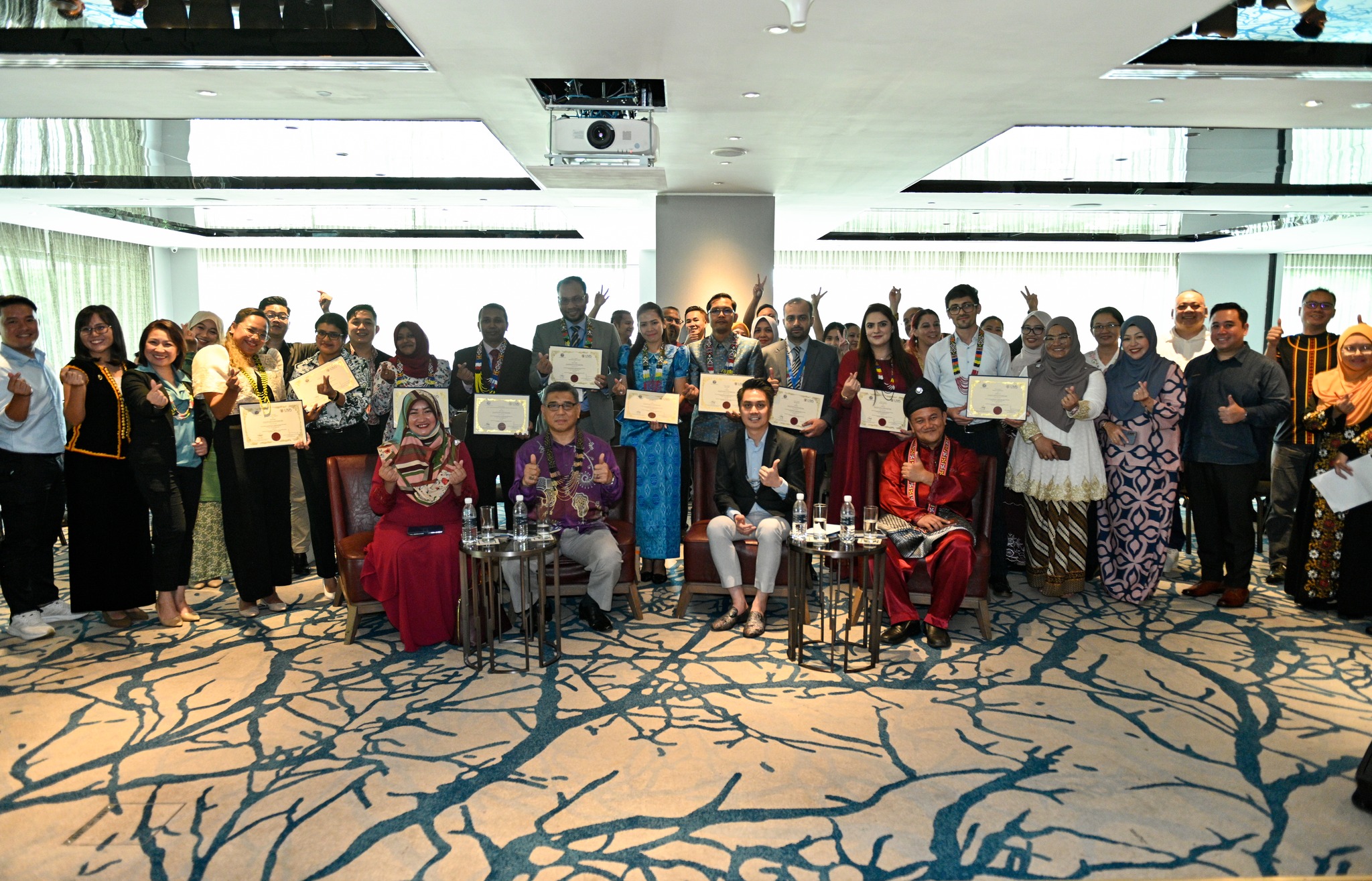 Training Course on Tourism 2023 University Malaysia Sabah (UMS)-MTCP equip knowledge and skills to champion sustainable and responsible tourism.
Training Course on Tourism 2023 University Malaysia Sabah (UMS)-MTCP equip knowledge and skills to champion sustainable and responsible tourism.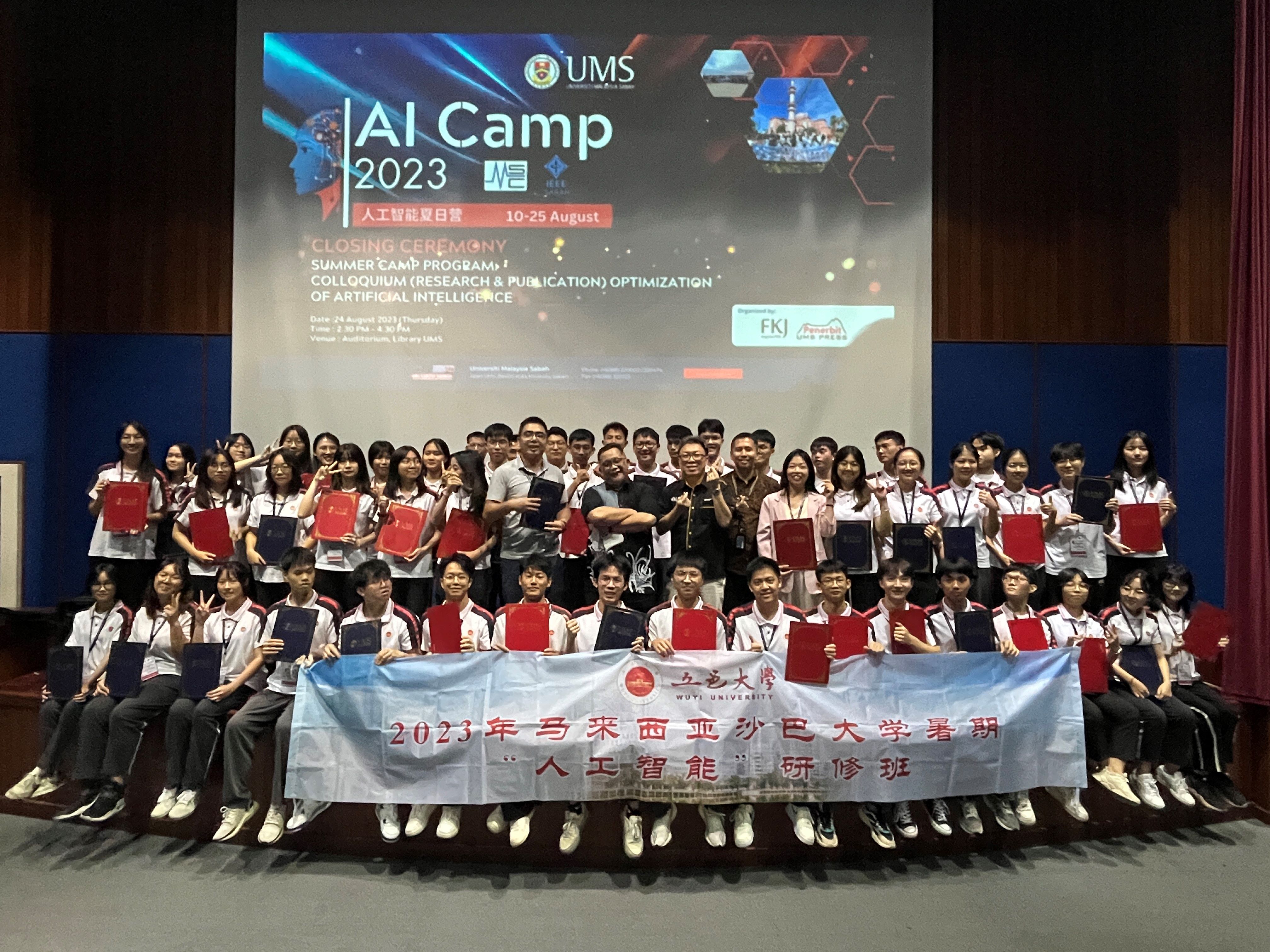 Universiti Malaysia Sabah (UMS) Press wraps up a Summer Camp with Wuyi University, China delegation by organizing the Summer Camp: UMS Colloquium on Artificial Intelligence (Research and Publication) recently.
Universiti Malaysia Sabah (UMS) Press wraps up a Summer Camp with Wuyi University, China delegation by organizing the Summer Camp: UMS Colloquium on Artificial Intelligence (Research and Publication) recently.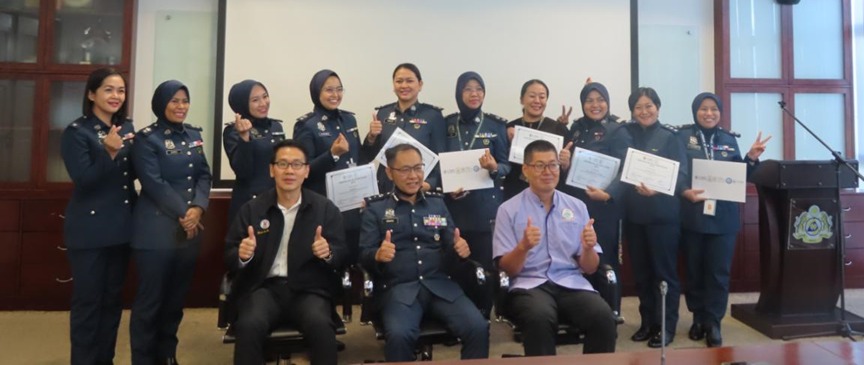 To enhance their ability to serve and communicate better with the growing Chinese community in the region, a group of staffs from Royal Malaysian Customs Department of Sabah had successfully completed their Chinese Language Course (HSK) level 1 at Confucius Institute Universiti Malaysia Sabah (CI@UMS).
To enhance their ability to serve and communicate better with the growing Chinese community in the region, a group of staffs from Royal Malaysian Customs Department of Sabah had successfully completed their Chinese Language Course (HSK) level 1 at Confucius Institute Universiti Malaysia Sabah (CI@UMS).